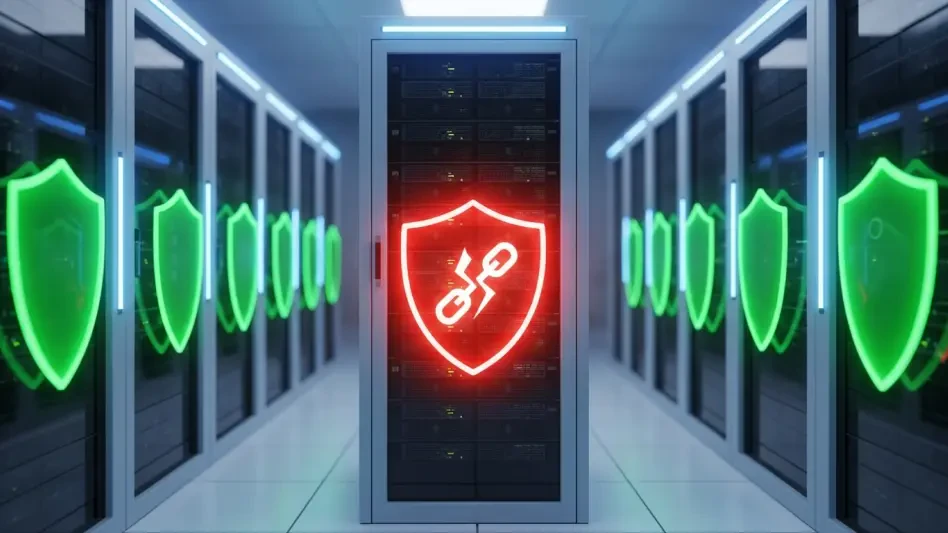In the rapidly evolving world of cybercrime, new contenders often rise to fill the void left by their predecessors, showcasing the adaptability of malicious actors. An example of this is the recent appearance of a malware called Acreed, which has made a significant impact on the stolen password market in the wake of its predecessor Lumma Stealer’s shutdown. Accomplished through efforts by global law enforcement in May, Lumma’s removal created an opportunity that Acreed has exploited with disturbing efficiency. Quickly establishing itself as the dominant infostealer threat of the moment, Acreed has thus caught the attention of cybersecurity analysts and professionals worldwide. By the end of this year, it surpassed many well-known malware programs, highlighting the ongoing challenges these digital lawbreakers pose to global cybersecurity initiatives.
The Rise of Acreed in the Cyber Underworld
Following the sudden end of Lumma Stealer’s reign, Acreed rapidly gained momentum by leveraging existing dark web networks to distribute stolen credentials. Within a very short period, Acreed managed to upload over 4,000 stolen credential packages to the widely recognized Russian Market. This platform stands out as a leading dark web destination for the sale of hacked passwords, underlining Acreed’s relentless progression. Its swift success underscores how agile cybercriminal ecosystems have become in adapting to law enforcement pressures. By studying marketplace operations, cybersecurity professionals, such as those at ReliaQuest, have observed a cyclical pattern—new malware like Acreed emerging to succeed its forebears, continuing the line that includes Raccoon Stealer and Lumma Stealer.
Despite these interventions, the resilient marketplace infrastructure that facilitates such crimes stays largely untouched. Acreed’s rise, although sudden, is far from surprising to experts who are cognizant of the constant shifts within these underground networks. Top-tier malware like Acreed continues targeting both businesses and individual users on a global scale. It is evident that with the takedown of one threat, several others lay in wait, poised to take its place in the next evolution of cyber threats. The extensive nature of its reach particularly poses concerns for large corporations relying heavily on cloud-based services, as Acreed has ramped up attacks on platforms such as Google Workspace and Zoom.
Targeting Corporate Vulnerabilities
By delving deeper into its method of operation, analysts have shed light on Acreed’s specific strategy that has enabled its rapid success. Its primary targets include corporate cloud accounts, with a notable focus on “software-as-a-service” platforms, a crucial component of modern business operations. Professional service companies, as well as technical firms, have borne the brunt of this infostealer’s activities. These sectors are particularly susceptible to credential theft alerts, stemming from the vast amounts of sensitive data they handle. The strategic targeting of highly reliant corporate systems on cloud-based services has provided a fertile ground for Acreed to exploit countless vulnerabilities.
A significant factor contributing to Acreed’s success lies in its ability to specifically target popular browsers such as Chrome and Firefox. These browsers, known for their expansive user bases, frequently store sensitive data like saved passwords and financial information, making them attractive targets for Acreed’s operations. This targeting is executed via deceptive forms of cyber intrusion, including phishing emails and the use of counterfeit online advertisements. The latter often trick users into clicking seemingly legitimate links, leading to the unintentional installation of malicious software.
Mitigating the Threat
Following the abrupt halt of Lumma Stealer’s activity, Acreed quickly gained traction by using existing dark web platforms to spread stolen credentials. In just a brief period, Acreed uploaded over 4,000 credential packages to the infamous Russian Market, a prominent dark web hub for selling hacked passwords. This highlights Acreed’s aggressive growth and the fluid nature of cybercriminal communities in dodging law enforcement efforts. Cybersecurity experts, like those at ReliaQuest, have noted a repeating trend where new malware like Acreed replaces older ones, maintaining the lineage, which includes notorious entities like Raccoon Stealer and Lumma Stealer. Despite crackdowns, the infrastructure supporting these crimes remains largely intact. Acreed’s rise isn’t shocking to experts familiar with these evolving networks. High-end malware like Acreed not only targets businesses but also individuals worldwide. The threat is significant for large companies relying on cloud services, as Acreed intensifies attacks on tools like Google Workspace and Zoom, illustrating the persistent evolution of cyber threats.








